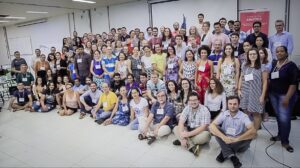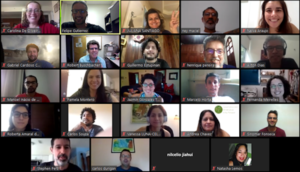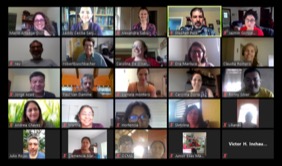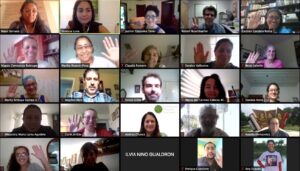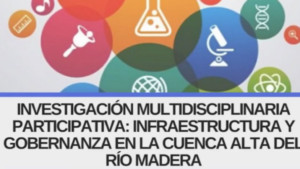GIA is led by the University of Florida Tropical Conservation and Development Program and aims to create, strengthen and expand a Community of Practice and Learning (CoP-L) for exchanges of experiences and reflection on the use of tools and strategies for infrastructure governance by conservation and development practitioners in the Amazon.
COVID-19 and the Amazon
The COVID-19 pandemic is in the first instance a public health emergency, and has rapidly expanded to have major economic impacts. The resultant crisis is profoundly affecting the lives of GIA Community of Practice and Learning participants, their families and loved ones. It is sending shock waves through indigenous and other communities, while also creating the potential for transformational change in the large-scale drivers of infrastructure development and governance throughout the world. Inthis issue of the GIA newsletter, we provide several perspectives on the impacts and responses to the COVID-19 pandemic.
In an inspiring interview, Neidinha (Ivaneide Bandera Cardoso), the leader of the Associação de Defesa Etnoambiental Kanindé in Rondônia, describes her personal battle with COVID-19 and her tireless efforts to help meet basic needs of indigenous communities. She recounts how the public health threat is compounded by invasions of indigenous lands, and describes efforts to mobilize governmental action to address these threats. Throughout the discussion, Neidinha transmits a message of humanity and love for every actor in this tragic drama. Please access the interview here.
In a related article, Juliana Santiago (UF/GIA) provides a broader picture of the alarming spread of COVID-19 in indigenous and other rural communities throughout the Brazilian Amazon. Unfortunately, the severe social impacts are exacerbated by increases to deforestation and illegal occupation of public lands. On the other hand, there are extensive efforts of mobilization and solidarity occurring throughout the region, led by indigenous organizations and their supporters. The article provides links to several key information resources and a list of organizations that are mobilizing to address the health, social and environmental impacts of COVID-19 on the Brazilian Amazon. Access the article here.
To look beyond impacts and immediate steps, GIA offered the webinar Post-COVID19: a green and inclusive recovery for Latin America on May 20 to exchange ideas on how responses to the immediate public health and economic challenges could also incorporate considerations and actions on structural economic changes that re-evaluate current development models towards more just and sustainable development alternatives. Around 130 participants heard engaging ideas from Gabriel Quijandría Acosta, Vice Minister of Strategic Development, Natural Resources and the Environment in Peru, Monica de Bolle, Senior Fellow at the Peterson Institute for International Economics, Gustavo Fonseca, Program Director of the Global Environment Facility, and Esteban Perez, Development Finance Coordinator, Economic Commission for Latin Amercia and the Caribbean (ECLAC-UN), moderated by Susan Paulson, Professor in the Center for Latin American Studies, University of Florida.
Webinar Post-COVID19: a green and inclusive recovery for Latin America
The webinar highlighted the interrelationship between economic, social and environmental aspects of recovery and development, the important role of public development banks, and the need to provide incentives and policy levers to promote a green economy and social infrastructure. More fundamentally, Latin America needs a more integrated development model less dependent on global markets and financial flows. Several participants highlighted the important role of civil society, both in terms of elaborating proposals for alternative development pathways and to create the political support and will to implement them.
Additional GIA webinars are being planned based on demand from our community participants and feedback from previous events. Stay tuned!
All of these important conversations are ongoing. In an upcoming event in early June, the RECAM Network in Brazil is hosting an online exchange of experiences between local organizations from the Brazilian Amazon on how they are responding to the challenges of COVID-19. Visit RECAM page on Facebook here.
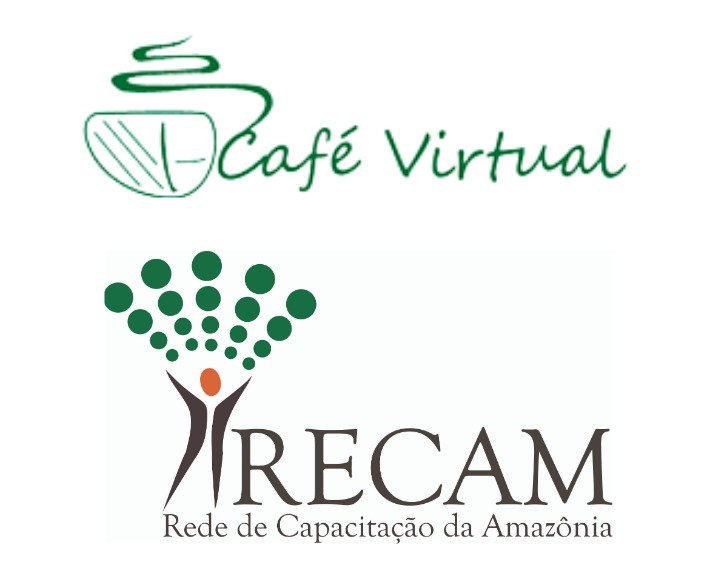
GIA Webinars
Webinar Develando el Valor del Bosque en un Escenario de Transición hacia la Paz
Around 62 people joined on May 22 to learn from more than seven years of experience from the Colombian NGO Fondo Acción in the Amazonian department of Caquetá, in an area of high incidence of deforestation, social complexity, and armed conflict. This webinar highlighted the value of building trust and social participation in strengthening territorial governance that contributes to reducing deforestation and improving rural people’s wellbeing. The presentation prompted many questions from attendees, including those about next steps in the project in an unpredictable political, environmental and social context. This webinar is aligned with the main recommendations of the GIA Colombia Community of Practice and Learning in 2019 on the importance of strengthening capacities of indigenous and peasant communities, in local territories, to promote better governance in the Amazon.
Remember GIA Mosaics Virtual Meetings
We have had a series of virtual meetings with each GIA mosaic-level Community of Practice (Mosaic Alto Madera in Bolivia and Brazil; Amazonia Colombiana; Sul de Amazonas/Norte de Rondônia in Brazil; and Loreto in Peru) to present results from GIA’s first year of activities and discuss next steps for 2020.
Click on the images to see more information about each workshop.
Webinar Mosaic Sul de Amazonas/Norte de Rondônia, Brasil: April 15th. Access the Webinar YouTube recording.
Webinar Mosaic Alto Madera/Bolivia y Brasil: April 17th. Access the Webinar YouTube recording.
Webinar Mosaic Amazonia Colombiana: April 24th. Access the Webinar YouTube recording.
Webinar Mosaic Loreto, Perú: April 21st. Access the Webinar YouTube recording.
New GIA website
GIA is pleased to announce that we are in the process of launching a new website at https://giamazon.org/. The current website is therefore temporary and under construction until the new website is functional. We apologize for the inconvenience.
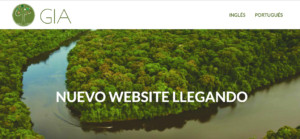
Learn more about news and events in the GIA Focal Mosaics!
GIA and the Amazonian University of Pando (UAP) in Bolivia have recently started a training course on research methods for 17 multidisciplinary UAP students in their last semesters. The 8-week course being taught by GIA Co-Coordinator Andrea Chavez will help students prepare a research thesis proposal in alignment with GIA’s approach and priority topics in the Alto Madera (Bolivia/Brazil) Mosaic. Following the course, four proposals will be selected and funded by GIA. In addition, GIA will provide one-to-one mentorship to the four thesis researchers. This collaborative research initiative will increase UAP research capabilities and opportunities that support local initiatives for infrastructure governance.
Amazon at the Crossroads
Analyses from six countries reveal the conflict between the economic development perspective and the rights of indigenous territories and the conservation of protected areas. Amazon at the Crossroads is an overview of the situation of pressures and threats in Natural Protected Areas and Indigenous Territories in six countries in the Amazon. The analyses and cases presented are based on cartographic data from the publication Pressures and Threats in the Protected Areas and Indigenous Territories of the Amazon.
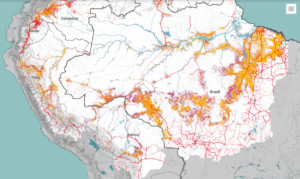
The International Research Network on Amazonian Dams (ADN) 2020 webinar series!
The International Research Network on Amazonian Dams (ADN) organized a series of webinars in order to encourage discussions for the III International Workshop of the network with the theme: “Hydroelectric Plants in the Amazon – Governance, Adaptive Management and Alternatives,” which has been postponed to Spring 2021. The objective is to provide recommendations for the process of planning and managing the socio-environmental impacts of hydroelectric projects in the Amazon and to present alternatives to the generation of hydraulic energy. You can watch past presentations on ADN YouTube here and visite the ADN website here.
